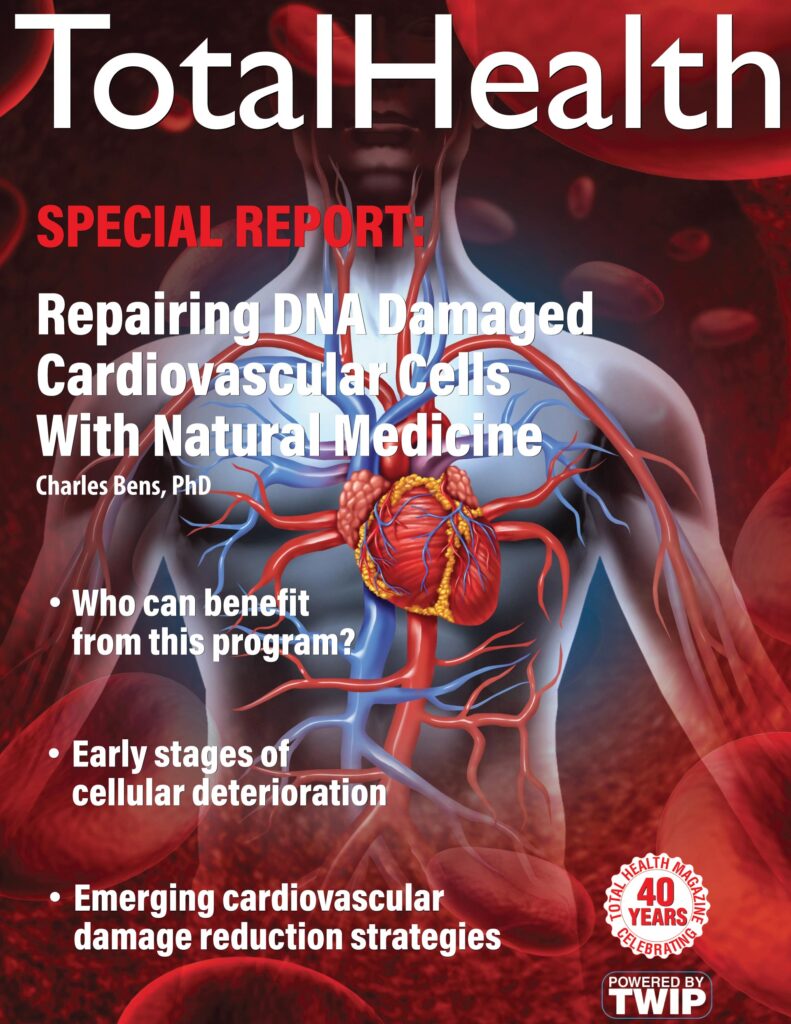
The Secondary DNA Cellular Repair Nutraceuticals
1. Curcumin- It is very difficult to achieve effective cellular repair if there is inflammation in the body. Curcumin has major anti-inflammatory and anti-oxidant properties and is also known to help in the repair of damaged tissue, such as cartilage. Curcumin also boosts brain-derived neurotrophic factor, which has improved brain function in brain related illnesses such as dementia and Alzheimer’s.
2. Zinc- Zinc has strong anti-oxidant properties, but this is just one of its many important functions in the cellular repair and replacement process. Zinc picolinate can repair a damaged stomach lining in 30 days. Zinc plays an important role in the cell replication process by also helping with the production of growth hormones and assisting the DNA synthesis process. Zinc is a cofactor of antioxidant and DNA repair enzymes, and is involved in apoptosis, cell proliferation, protection against free radicals, and DNA repair pathways. Zinc supplementation in the elderly has been shown to limit DNA damage.
3. Vitamin B- All of the B vitamins are important, but in terms of cellular repair and replacement a few of the B vitamins go to the top of the list. Vitamin B6, B12 and folate are methylators, which means they are needed to help convert amino acids into hormones, neurotransmitters and other important biochemicals. Vitamin B1, in the form of benfothiamine, is able to help rebuild the myelin sheath (outer lining) of our nerves. As a co-factor in many cellular functions, vitamin B is crucial to all of the cells in key organs such as the brain, heart, liver, kidneys, blood vessels and intestines. As part of the cellular repair process it is important to consume a vitamin B complex and also take additional amounts of vitamin B1 as benfothiamine, B6. B12 and folate.
4. Molecular hydrogen- Molecular hydrogen (H2) is the smallest molecule capable of easily penetrating every cell, including cells in the brain. This is very important because H2 helps to increase oxygen delivery to our cells and ensure a balance is maintained in the release of protective cytokines to fight infections. Supplementation with H2 has been shown to improve cellular function in the nervous system, the cardiovascular system, the digestive system, the respiratory system, the urinary system, the reproductive system and the brain.
5. Nicotinamide Adenine Dinucleotide (NAD)- NAD is a molecule in the niacin (vitamin B3) family of nutrients that plays a key role in the cellular aging process. Its role is as a coenzyme, or helper molecule, in many biological processes. As our cells go through the normal cell-replacement process, there are a few checkpoints in this cycle where everything must be perfectly aligned to allow for a good new cell to be produced. NAD plays a key role in insuring that all cellular systems are working efficiently in this replacement cycle. If nutrition, sleep, stress, toxins and exercise are all at optimal levels, then having good NAD levels provides the insurance for excellent cellular replacement. This replacement process also occurs when cells have been damaged as is the case with the cells of COVID-19 patients.
6. Pycnogenol- This supplement comes from French Pine Bark and has been shown to have protective capabilities in several cellular functions including the repair of brain cells after a stroke. It has also been shown to improve kidney flow and function, as well as help to reduce blood clots as an anticoagulant. This is important for COVID-19 patients since blood clots have been found in many parts of the body even after symptoms have been resolved.
7. Probiotics- These beneficial bacteria are crucial to the development of most nutrients in the intestines. They help to control pathogens that come into the body and they break down food for the nutrients they contain. Probiotics also help to initiate the development of anti-inflammatory and immune function molecules. These beneficial microbiotas can significantly influence molecular mechanisms and pathways that can influence both the prevention and resolution of numerous chronic illnesses, as well the epigenetic expressions that can determine our future health.
8. Olive Leaf Extract- Olives are one of the cornerstones of the Mediterranean Diet and have been helping people to be healthier for thousands of years. One of the primary functions of olive leaf extract is to prevent viral infections. However, it has also been shown to improve cardiovascular health, lower blood pressure and protect organs such as the pancreas, liver and the kidneys. Olive Leaf Extract has anti-inflammatory properties and has been proven to repair tissue damage related to kidney disease, upper respiratory illnesses, fatty liver disease and heart disease.
9. Digestive enzymes- As we age our body makes fewer digestive enzymes, which are needed for the processing of food, metabolic functions and the delivery of nutrients to our cells. By the time we are fifty years old our bodies may be making up to 50% less digestive enzymes then when we were twenty years old. This is part of the body’s programmed aging process. Most raw foods have sufficient enzymes to process the nutrients in them, however cooking foods destroys all enzymes. There are over 5,000 enzymes in the body responsible for many functions including the cellular repair and replacement process, as well as helping to kill germs, bacteria, viruses and other pathogens.
10. Selenium- This mineral is a known ROS scavenger, which means it cleans up oxidative damage. It can also be incorporated in the amino acid selenomethionine, which may up-regulate a specific DNA repair pathway. Good sources are Brazil nuts, yellow fin tuna and supplements. Tuna should be eaten sparingly due to high levels of toxins.
11. Resveratrol- Resveratrol is a natural polyphenolic compound, specifically a stilbene, which is found in significant amounts in grapes, berries, peanuts, and other plant sources, as well as in red wine. This compound has become very popular due to its multiple reported properties that include inflammation-mediating, cardio-protective, antioxidant, and anti-cancer, among other things. As an anti-cancer compound, low-dose resveratrol accelerates non-mutagenic repair of DNA damage in mouse embryonic stem cells exposed to ionizing radiation. Furthermore, resveratrol was shown to significantly reduce DNA damage from arsenic compounds in non-cancerous mammalian cells by enhancing repair activities, especially if used prior to exposure. Resveratrol repairs DNA damage and activates the repair mechanisms in various cancer cell lines such as prostate cancer cells, colon cancer cells, and breast cancer cells. Indeed, head and neck squamous cell carcinoma cells as well as breast cancer cells receive more DNA damage than their normal counterparts. Resveratrol has been shown to affect different DNA repair pathways in MCF7 breast cancer cells by reducing the expression of several genes involved in this activity and where mismatch repair and homologous recombination stand-out such as most affected. Resveratrol made breast cancer cells more susceptible to cisplatin, and specifically in cisplatin-resistant MCF7 cells, resveratrol was able to re-sensitize cells by decreasing several key components of the homologous recombination pathway.
12. Quercetin- Quercetin is a flavonoid found in a variety of foods, including fruits and vegetables such as apples, berries, capers, grapes, onions, shallots, tea, and tomatoes, as well as many seeds such as nuts, flowers, bark, and leaves. Quercetin is known for its anti-inflammatory, anti-hypertensive, vasodilatory, anti-hypercholesterolemic, anti-atherosclerotic, antioxidant and, more recently, anti-cancer effects Meanwhile, in some colorectal cancer, cervical cancer and breast cancer cell lines, quercetin acted as a radiosensitizer by blocking ATM activation and its downstream signaling, thereby prolonging the persistence of damage and inducing apoptosis. Quercetin can potentiate the effects of PARP inhibitors, preventing efficient repair of DNA damage, and where inhibition of BRCA2 activity plays an important role during the passage of single-strand breaks to double-strand breaks during DNA replication. (1-12 inclusive26
Nutraceutical Honor Role
The following nutraceuticals also have a very good track record in the prevention and treatment of heart and circulation challenges on factors not related specifically to tissue repair:
- D-ribose
- L-carnitine
- Grape seed extract
- Folate
- Inositol
- L-arginine
- Garlic
- Serrapeptase
- Nattokinase
- Lumbrokinase
- Hawthorn berry
Disclaimer: While this protocol is supported by solid scientific evidence it is always advisable to consult a well-trained and qualified medical professional to ensure that individual biochemistry and conditions are taken into consideration.
Repairing DNA Damaged Cardiovascular Cells with Natural Medicine
| Previous page: The Primary DNA Cellular Repair Nutraceuticals | Next Page: Who Can Benefit From This Program? |


